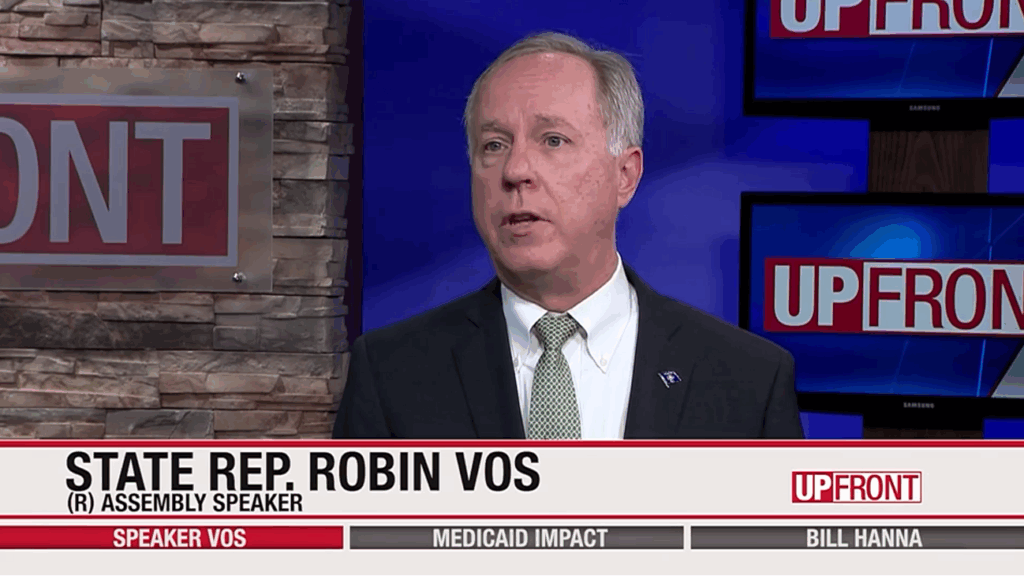Visit WisPolitics-State Affairs for premium content,
keyword notifications, bill tracking and more
Home » WisPolitics News » Vos on ‘UpFront’: Evers team lying that Republicans refused meaningful investment in education, childcare

GOP Assembly Speaker Robin Vos accused the Evers administration of lying when Gov. Tony Evers said in a statement that Republicans refused to agree to meaningful investments in education, childcare and the UW System as budget negotiations broke down. "That's a lie," Vos said on WISN 12's UpFront,” which is produced in partnership with WisPolitics. "We did that. We're willing to do it, just not as ...